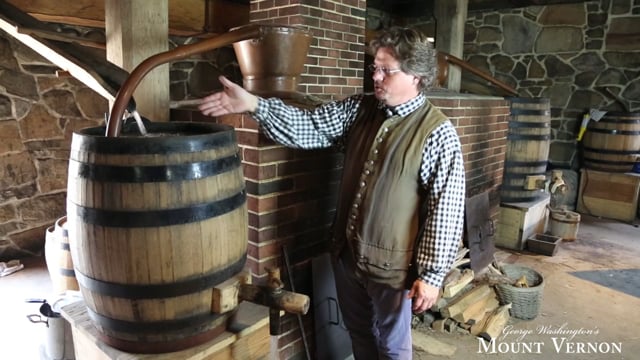1791
Be it enacted...
The excise tax - or "whiskey tax" - is passed through Congress in order to raise revenue for the new country. Individuals in Western Pennsylvania immediately voice their displeasure and vow to evade the tax.
The Pittsburgh Assembly Meets
The tension and discontent reaches a point of violent outbreak against tax collectors in the western counties of Pennsylvania. The Pittsburg Assembly meets to discuss the problem.
1794
Violence Ensues
Nearly 400 rioters harass tax collectors such as John Neville, the regional tax supervisor. They attack Neville and set fire to his property in response to the continuation of the whiskey tax.
Assembly at Braddock's Field
Rebels meet at Braddock's Field to further discuss their grievances. Meanwhile, Washington urgently sends a peace commission to Pennsylvania - and when that doesn't work, he orders a militia response.
Having determined from the Report of the Commissioners, who were appointed to meet the Insurgents in the Western Counties in the State of Pennsylvania... I left the City of Philadelphia about half past ten o'clock this forenoon accompanied by Colo. Hamilton & my private Secretary.
Diary of George Washington, September 30, 1794
Washington reviews the troops
Washington gathers militia forces from Virginia, New Jersey, Pennsylvania, and Maryland in order to settle the rioters in Western Pennsylvania. He has a force of 12,950 men in total.
Matters [with the army staff] being thus arranged I wrote a farewell address to the Army through the Commander in Chief Govr. Lee to be published in orders and having prepared his Instructions and made every arrangement that occurred, as necessary I prepared for my return to Philadelphia in order to meet Congress, and to attend to the Civil duties of my Office.
George Washington's Diary, October 20th, 1794
Showdown in Western Pennsylvania
Washington's troops march to Pittsburg to find that thankfully, most of the rioters have dispersed and quieted down.
Arrests made, the army departs
The army apprehend approximately 150 men and arrest them for treason, but most cases are hampered due to a lack of evidence and witnesses.
1795
Pardons issued
Washington issues pardons to John Mitchell and Philip Weigel, two men who were found guilty of treason.




